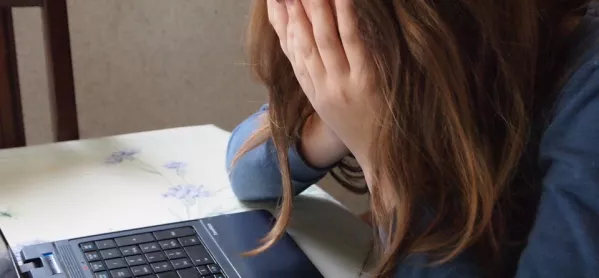- Home
- Schools ‘should teach children about the dangers of online sexual content’
Schools ‘should teach children about the dangers of online sexual content’

Schools should do more to teach children about the dangers of sharing sexual content online, a thinktank report recommends.
The scale of the problem means police and other law enforcement agencies should focus on those carrying out sexual abuse and making images of abuse rather than low-level offenders, the report suggests.
Artificial intelligence (AI) technology could also play a key role in tackling the problem of child sexual abuse images, the paper by cross-party thinktank Demos says.
In its report, which draws on evidence from experts including industry watchdog the Internet Watch Foundation (IWF), Demos highlights the growing problem of youngsters “sexting” - producing their own illegal material.
One-fifth of reported images in 2015 were “self-generated”, while around 16 per cent of young people aged 11-16 reported sending sexual images in the UK and one in six people reported to the police for indecent images were minors, according to research referenced in the report.
The report says the issues should be part of the personal, social, health and economic (PSHE) curriculum in schools.
“The pitfalls of sharing content online, including sexual content, should form part of the syllabus,” the report states.
“As the amount of self-produced illegal content continues to increase, stopping this at its source is the only sensible response.
“Education is needed to support potential victims of perpetrators of sextortion and peer-on-peer abuse, a growing problem.”
‘Open dialogue with children’
Children’s charity the NSPCC has estimated that up to 590,000 men in the UK may have viewed child sexual abuse images and the Demos report says the scale of the problem means police should target “sophisticated” offenders at the top of the criminal pyramid - abusers and those who make the images.
“This is not being ‘soft on paedophiles’, but rather a sensible way of targeting limited resources,” the report says.
The use of AI and “deep learning” has great potential in flagging up child sexual abuse images before they can be shared and identifying victims, but the pace of technological change means it requires continued investment.
According to the IWF, less than 0.1 per cent of identified child sexual abuse content is hosted in the UK, down from 18 per cent in 1996.
Some 60 per cent of the material it identified was from Europe and 37 per cent from North America.
IWF chairman Andrew Puddephatt will tell a meeting in Westminster that the UK is a world leader in the fight against child sexual abuse imagery.
“The model of independent self-regulation, which has been pioneered in the UK by the IWF, is working,” he said.
“There is always a debate about how far governments should intervene in the oversight and regulation of the internet but the fight against child sexual abuse imagery shows how much can be achieved when the industry works together with everyday internet users.”
A separate paper, produced by the National Centre for Social Research (NatCen), says that perpetrators of online-facilitated abuse are “generally male, white, young, educated, intelligent, employed” and with less prior criminal history than “contact” offenders.
The report, drawn up for the Independent Inquiry into Child Sexual Abuse, says that victims of online abuse are likely to be vulnerable teenagers, and many police feel unprepared to investigate such cases.
Jeffrey DeMarco, research director at NatCen, said parents had a key role to play in preventing potential abuse.
“What really stands out is that, by creating an open dialogue with their child, parents can help to prevent them turning to strangers online for reassurance,” he said.
“As new technology and platforms become the norm, everyone involved with safeguarding children, from parents to police to internet service providers, needs to ensure their knowledge is up-to-date and relevant to the contemporary online landscape.”
A Department for Education spokesperson said: “We want to help all schools deliver a high quality education that ensures pupils are equipped for life in modern Britain, and that is why last year the government passed legislation to make relationships education compulsory in all primary schools and relationships and sex education compulsory in all secondary schools.
“We recently issued a call for evidence to hear from parents, teachers and young people on what subjects should be taught, how to help them stay safe and face the challenges of the modern world.”
Want to keep up with the latest education news and opinion? Follow Tes on Twitter and Instagram, and like Tes on Facebook
Keep reading for just £1 per month
You've reached your limit of free articles this month. Subscribe for £1 per month for three months and get:
- Unlimited access to all Tes magazine content
- Exclusive subscriber-only stories
- Award-winning email newsletters



